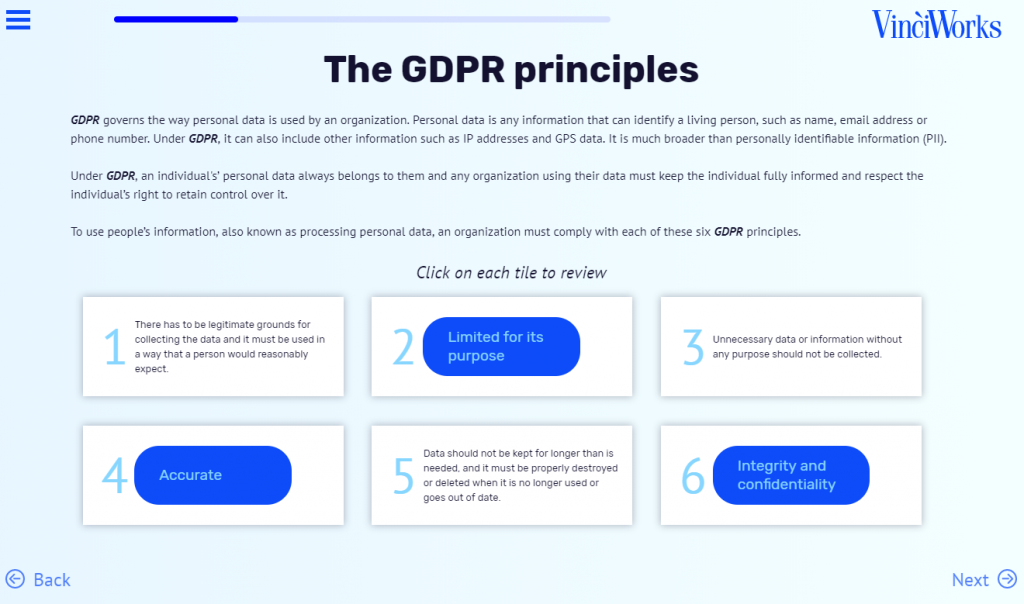The General Data Protection Regulation has now come into force. The UK’s third generation of data protection law has received Royal Assent and its main provisions commenced on 25 May 2018. The new Act aims to modernise data protection laws to ensure they are effective in the years to come. VinciWorks has hosted a number of webinars to help businesses prepare for the EU-wide law.
On 24, VinciWorks hosted a full-day live webcast to answer questions, interview experts and review the changes to data protection law under GDPR.
Full-day live GDPR webcast schedule
10:00am – Q&A on lawful basis for processing, Gary Yantin and Nick Henderson, VinciWorks
11:00am – GDPR Mythbusters, Webinar replay
11:30am – So you’ve been appointed DPO. What now? Interview with Andrew Moyser, MHA MacIntyre Hudson Chartered Accountants
12:00pm – Live Q&A on privacy notices and DPIAs, Alyssa Redsun and Nick Henderson, VinciWorks
1:00pm – Data Protection Impact Assessments, Webinar replay
2:00pm – The ICO’s view – what will change after GDPR? Richard Nevinson, Information Commissioner’s Office
2:15pm – GDPR – getting it right, Alex Brown, Simmons & Simmons
2.30pm – Live Q&A – ask us anything (about GDPR), Gary Yantin and Nick Henderson, VinciWorks
3:30pm – Privacy notices, Webinar replay
4:30pm – Dawn raids – preparing for the unexpected, Karla Gahan, VinciWorks
5:00pm – Closing remarks and guidance








